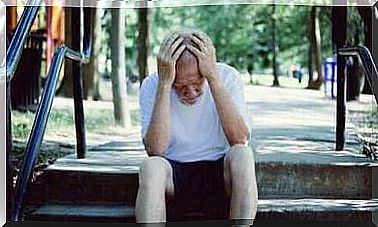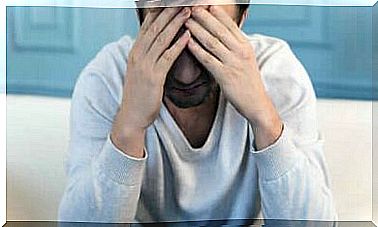What Is It Like To Live With OCD?

Have you ever thought about what it is like to be obsessed with order, cleanliness and to follow certain rules? Is it happening to you? Obsessive-compulsive disorder, obsessive-compulsive disorder, or OCD, has two main components – obsession invades the mind of the individual, and coercive actions aimed at reducing distress as a result of the occupation.
The cycle between an obsession that emerges and a coercive action that develops defines the lives of people with OCD. They deal with a high level of suffering and anxiety, feel misunderstood, and spend a lot of time using obsessions with the help of compulsive rituals. In this article, we explain what their daily lives are, and what kind of thoughts, emotions and fears they have.
Anxiety is an important part of OCD
People with OCD live with a lot of anxiety. It follows them like a shadow. Why? Because anxiety, and the need to avoid it, is what ultimately motivates most of their behavior. When an obsession occurs, their anxiety increases. If they fail to perform the compulsive ritual, the anxiety will grow and grow, and then fear is added to the mixture.
For example, for someone whose obsession is to have clean hands, they feel almost no anxiety while washing their hands. But who can spend all day with their hands under the tap? Whose skin can endure so much contact with soap?

Imagine that the person uses public transport, walks on a subway and thinks of all the bacteria on everything they have touched. Because they are in a place where they can not perform their compulsive behavior, they will feel very anxious. And this will only continue to increase with each passing minute without washing their hands.
It is easy to see how limited their capacity to have a regular routine is. People with OCD go to extremes to avoid situations where they cannot perform their coercive actions, or who will expose them to their obsession (in this case, anywhere it is dirty). As a result, their lives will be limited to their homes, places that are only a short distance away, a small circle of friends and little or no social activity.
Fear of your own thoughts
People with OCD are afraid of their own thoughts. They fear that thinking about something will increase the chances of it happening. In addition, people with OCD make rules and norms about what they can and cannot think about, and feel as if if they do not follow them, something terrible is happening. In these cases, the basic emotion they feel is fear, and the compulsive ritual is a failed strategy that promotes fear.
It is impossible to have full control over your thoughts. Trying not to think of a pink elephant makes you think of something other than the pink elephant. People with OCD have the same thoughts as everyone else, but they confront them in a way that only makes them more intense.
People with OCD may want to get rid of everything in their mind that provokes fear. As this is impossible, they become afraid of their own thoughts. People with OCD are afraid of not being able to control their thoughts. They just want to think of nice things, but they fail in all their endeavors because it is an impossible feat.

Thus, people with OCD are always fixated on what their minds are saying by trying to control their thoughts by using ineffective strategies. When they can not do this, their anxiety rises and becomes fear, and it feels as if only the compulsive ritual will bring them back to their comfort zone. They live as prisoners in their own minds, without being able to verify that nothing bad will happen if they do not perform the ritual. They live every day in such a way that they try to control the uncontrollable.
If you know someone with OCD, it is important not to try to rationalize with them. They already know that the chances are that what they fear and expect will not happen. In other words, they are not psychotic and have not lost touch with reality. They know they are exaggerating their ability to control things, but their anxiety and fear are strong enough to push them into a cycle from which they cannot get out.
The best thing you can do is encourage them to go to a psychologist who specializes in OCD or anxiety disorders. You can help them find one, and if they trust you enough, you can even join them for their first hour. OCD can be incredibly devastating, but there are therapeutic strategies that have been shown to be effective in reducing the negative effects on the daily lives of those who suffer from it.









